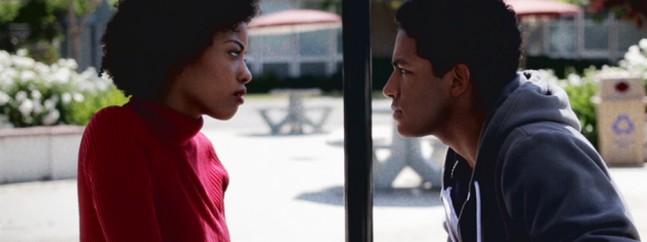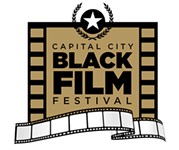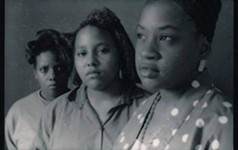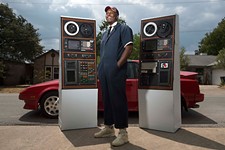Capital City Black Film Festival Returns
Year two gets even more ambitious
By Kahron Spearman, 12:57PM, Wed. Aug. 20, 2014
Now in its second year, the Capital City Black Film Festival has enjoyed enough increased attention and additional submissions to warrant a move to the more expansive Palmer Events Center.

Concentrating exclusively on black film, the festival highlights features and short films, in a variety of genres, as well as music videos. Discussion panels, networking opportunities, dance performances, and screenings will be included during the three-day event.
In a recent interview with Winston G. Williams, one of the two founders (along with his brother, Harrell Williams), we discussed the origins of the festival, its growth, the state of black film in recent times, and the future of the festival.
Austin Chronicle: What got you started in film? Was there a specific moment that put you down this particular path?
Winston G. Williams: What got me started in film is my brother. He's a filmmaker. He's put me in front of the camera three times in his short films. One of the short films that he put me in was called "They Lost It." I played lead male. He enter Hollywood Black Film Festival, San Diego Black Film Festival, and Charlotte Black Festival. We went to all of them. After getting back from Charlotte, I sat down and Googled it, and saw Austin did not have a black film festival. That's how this path started.
AC: Why start the festival in Austin, of all places, given the amount already here?
WW: The question I asked myself is if Austin really needed another film festival. But everywhere we went, filmmakers and others said they wanted to come to Austin. I heard that Homer Hill [of the Urban Music Fest] wanted to do a film festival, so I went to him. He said, “let's collaborate,” and that how it got started.
AC: How has the festival grown, from year one to year two?
WW: In year one year, we were very excited about the turnout, and thought it would be be the same this year. I was wrong.
AC: More entries?
WW: Double the submissions, but not accepted.
AC: There is always a lot of commentary on what “black” film is, and what it is not. Within the context, what expectations do you have of the film entries, and their reception?
WW: Well, you need to complete a whole article on this one (laughs). In the first year, that was a question I had and I was really determined to do a panel discussion on "What is a black film?" We had representatives: filmmakers, actors, movie [producers]. Julius Tennon was on that panel. We just had a discussion with attendees and the panelists, about "what is a black film?" There's so many different answers. The end result was that there is not an answer.
In our first year, we were determined to narrowly define the criteria for submission. We [initially asked for submissions with] a writer, director, and producer had to be black. This year we've expanded the criteria to having black content. There are non-black people making films about black people. It's only increased the visibility. One thing about that is. (pause) I'm sorry, I'll stop. (laughs)
AC: We can continue on. (laughs)
WW: Well, I went to see a movie this year, called The Retrieval [from writer/director Chris Eska]. Alright? The Retrieval is about a slave, a teenaged slave, and they are kind of like bounty hunters, post-slavery – one year post-slavery. It's a movie by a non-black person about slavery. And when we had a chance to talk about the film, that was one of the questions: Why do we keep seeing films about slavery? I know that it takes a decade to get a film made. They don't just come out. You don't know these things are coming out. The other part of it is that it does give work to actors. You have to balance the argument.
AC: Is there a model, in terms of quality, that you’ve based the film festival on? Is there something you saw, or decided to take different things from festivals you've been to, and make a collage?
WW: Of course, the American Black Film Festival. I've tracked them since they were in the Caribbean, and now they are in New York with their own [broadcasts]. I've tracked them for a long time – I've been about four times. Also, the Hollywood Black Film Festival. Those two are models. I attended an international film festival summit here in Austin, back in December. Couple hundred film festival organizers from the states and Canada. So [out of these experiences] many of things I just made up, because I knew what we needed to do. We had the growth pains and mistakes – all normal. I was glad to just be on track. If we grew up, I would like to be like the American Black Film Festival.
AC: Lighter question – what is the last film that you were really moved by, maybe over the past year?
WW: I'm moved by so many. I'll answer the question is relation to the festival. There is a film I think about called A Cabin in the Sky – old black and white film. I watched that movie because it had such strong messages about faith, God, second chances, and redemption. When I talk about the festival, in relation to my favorite movie, that's the one I refer to. Because at some point in time, in the future, what we want to do is bring those old films back, and mix them into the festival.
AC: So, perhaps, some of the old Paul Robeson films?
WW: Yes. You're seeing the plans for next year. (laughs)
The Capital City Black Film Festival will take place Aug. 21-23 at the Palmer Events Center (900 Barton Springs) and the Brass House Jazz Club (115 San Jacinto Blvd.). Full festival passes, $199; individual events, $10-$50. For a full schedule and to buy tickets and passes, go to www.capcitybff.com.
A note to readers: Bold and uncensored, The Austin Chronicle has been Austin’s independent news source for over 40 years, expressing the community’s political and environmental concerns and supporting its active cultural scene. Now more than ever, we need your support to continue supplying Austin with independent, free press. If real news is important to you, please consider making a donation of $5, $10 or whatever you can afford, to help keep our journalism on stands.
Marjorie Baumgarten, Aug. 15, 2017
Sept. 15, 2023
Sept. 8, 2023
Capital City Black Film Festival, Winston G. Williams, Harrell Williams, Homer Hill









